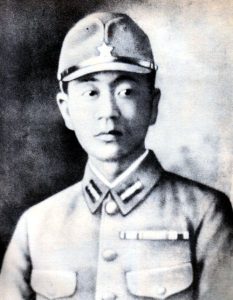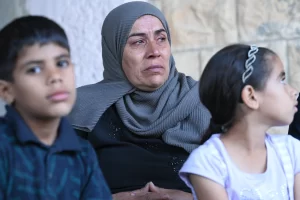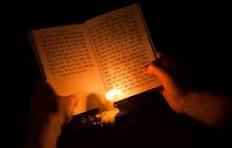We approach Shabbat with heavy hearts, mourning the loss of two young people, Sarah and Yaron.
Sophie Milman performs Eli, Eli, the poem of Hannah Senesh. May we find peace this Shabbat, for us and everyone.
Shabbat Shalom
#BringThemHomeNow
We approach Shabbat with heavy hearts, mourning the loss of two young people, Sarah and Yaron.
Sophie Milman performs Eli, Eli, the poem of Hannah Senesh. May we find peace this Shabbat, for us and everyone.
Shabbat Shalom
#BringThemHomeNow
The end of World War 2 came at a significant human cost. Eisenhower continued to bomb cities in Germany so that the Germans knew with certainty they had lost. Not one, but two atomic bombs were dropped on Japanese cities, unleashing their death and destruction. And yet many did not put down their arms. 5,000 Japanese soldiers refused to surrender at the war’s conclusion, remaining loyal to their oath to the Emperor, the deeply ingrained values of Bushido, emphasis on honor, and self-sacrifice at their core.

The most famous among them was Shoichi Yokoi, who returned to Japan from Guam in 1972, 27 years after the war’s end. He is quoted as saying, “It is with much embarrassment that I return.” (Smithsonian Magazine; https://www.smithsonianmag.com/history/the-japanese-wwii-soldier-who-refused-to-surrender-for-27-years-180979431/)
There may be invaluable lessons from the Japanese fighters who held out even after the war ended when dealing with Hamas.
To understand the fighters loyal to Hamas, we must understand the profound philosophical, existential commitment to the idea of fighting to regain the land perceived as stolen. Leaders with bona fides that these Hamas fighters will respect must arise and offer a different path forward. This can initiate a process where, eventually, those committed to Israel’s obliteration will be overcome by those committed to a peace wherein both sides live in safety and security, side by side.
 The sheer brutality of the current war in Gaza would, under normal circumstances, make any leader want to stop the suffering of the people and compromise in the name of peace. However, Hamas is not normal circumstances. The human suffering they use in the service of their ideology is perfectly acceptable to them and is, in point of fact, one of the weapons they have employed in dealing with the Palestinians and the hostages.
The sheer brutality of the current war in Gaza would, under normal circumstances, make any leader want to stop the suffering of the people and compromise in the name of peace. However, Hamas is not normal circumstances. The human suffering they use in the service of their ideology is perfectly acceptable to them and is, in point of fact, one of the weapons they have employed in dealing with the Palestinians and the hostages.
Similarly, the hatred on the Israeli side of the equation is equally brutal. The invasion of October 7 was viscerally felt as an existential moment. Hatred and the desire for revenge only build with the cynical bargaining chip that is the hostages. As those lives hang in the balance, Israelis must also find courageous leaders to lead their people to peace.
One of the few things made clear is the current situation is a meat grinder consuming human victims with impunity. This is morally and ethically reprehensible. Moderating voices must arise to quell this war machine and find a better path forward.
There will be those who see victory only as the destruction and capitulation of the enemy. It is an unrealistic goal. The price is astronomically high in lives lost and is ultimately unachievable. These ideologues and zealots must be marginalized. It may take generations for this view of the world to fade away, and only with perseverance and strength can we support those seeking a way forward that can permit a peaceful coexistence to form.
And He lived…
Vayechi is a misnomer. The chapter that opens with And He Lived is actually the final moments of Jacob’s life. Jacob is on his deathbed, surrounded by his sons. He offers frank assessments of them and blessings of a kind as he prepares to die. Indeed, our tradition looks to this chapter as the essence of the Jewish Ethical Will. It is a centerpiece for me when teaching the Ethical Legacy Will. What we bequeath as our legacy is genuinely profound; what we offer as our final thoughts, spoken and unspoken, will resonate in the hearts and minds of those we leave behind, framing their understandings of their place in the world and how they forge relationships of their own. One of the most striking examples lies outside the text. Nowhere is Jacob’s daughter Dinah to be found.
We can surmise that Dinah’s relationship with her father, Jacob, was not close. In the story of her rape, she is identified as the daughter of Leah. We never hear her voice telling the story, and Jacob’s concern for his sons’ vengeance focuses on how it will complicate things with other clans. He seems unconcerned about whether she was harmed. It is disappointing that Dinah is not at her father’s bed to say goodbye. Every son was there, and even sons not held in particular esteem were present to at least hear their father’s final words.
What is said and what is unspoken, who is in the room, and who is excluded. We learn so much by being aware of these things. We hold an extraordinary power as parents. We are exemplars of behavior and also models of misconduct. Both have a profound impact. We need to exercise caution. For what we say and to whom will last far beyond our mortality.
Did Dinah grieve for Jacob? Did she feel excluded from the intimate space, witness to his passing? Did she harbor resentment about being treated so differently from her brothers? These are only some of the questions the text begs but leaves unanswered. Some may chalk this up to Jacob’s milieu and the age in which he lived. It is unfair to judge a character from the past by current acceptability standards, particularly one with such eminence in our grounding myths.
I am disappointed, however. Jacob’s life trajectory has been extraordinary. At the start, he is a stealthy, guileful, and conniving person who grows and evolves to become rightfully someone worthy of the title Patriarch. His encounters with the Angel at Beth El and his brother Esau exhibit his remarkable growth. His reunion with his son Joseph and his treatment of Manasseh and Ephriam show that he is loving and caring. So, the time here at his bed seems a bit off. I would have thought his compassion and empathy could have extended to all his family. I expected that his harsh words for Reuven, Shimon, and Levi would have been tempered by the knowledge they already knew the consequences of their actions, and leaving them instead with something positive to remember him would serve these sons better. And, of course, there is Dinah, or more precisely, there is not.
This was a final moment to offer some reconciliation. To offer her heartfelt words that might heal wounds that likely could not do so. Some Midrashim suggested that perhaps she was not even around, but she remained in Shechem. The rabbis struggled with her story, offering several alternative ideas about what became of her. There is so much we do not know, and it makes the heart ache to wonder about the pain of being excluded or without a voice.
What we leave behind endures—both the good and the bad. Our legacy is taught in our lives and the examples we set. The Ethical Will offers a chance to leave final words behind, maybe to explain poorly understood behavior, and indeed to provide enduring words of connection. What we say and to whom will be lasting. We need to exercise care for our own sake and on behalf of the hearts of others.
And he lived…
Rabbi Info:
Rabbi David Levin is dedicated to creating a meaningful life journey with Jewish wisdom. He teaches on these subjects, including the Ethical Legacy Will, and can be found at RabbiDavidLevin.com and EthicalLegacyWill.com.
I was sitting with someone recently. He is a Muslim and active in the causes of his people. I am a Jew and active in the causes of my people. We are part of a dialogue group that builds bridges and develops relationships with people we usually do not get to know. But we are engaged, and through this process, a friendship has ensued.
The war in the Middle East is deeply painful for us both. We both know people we deeply care about who are direct victims of this war.
My friend recently celebrated the birth of his child. Mom and baby are doing well. He is so excited to be a father. Like most fathers, he wants to provide for his family and nurture his child with love and a bright future filled with opportunities. I recently celebrated the birth of a grandchild. We are overjoyed to have a new addition to our family and cannot wait for the next opportunity to shower our love. But in this beautiful moment was something chilling; it was an epiphany of sorts. How different would this be if we did not all live here.
If the war between our people never ends, what would become of our children? With the birth certificate, effectively, a death warrant would have been issued as well. Whether warriors or innocent victims, they would be the fodder for hostilities between two warring nations; we bring them into a killing machine. Birth should represent hope- the idea that there is a future and tomorrow promises something good. We do not have children so that they may be offered up, sacrificed on an altar of hate.
My friend and I shudder at this, as do many other mothers and fathers here and there. Birth is a miracle, and peace is no less. It is time to find a path forward together.
Here we are, Celebrating Simchat Torah and welcoming Shabbat, but even this moment of joy is a challenge. We pray for the hostages to be returned and for peace.
Peri Smilow shares Debbie Friedman’s Those Who Sow based in Psalm 126.
Shabbat Shalom
This Shabbat is different. The feelings of vulnerability evoked by Sukkot underscore October Rain. Shulem Lemmer shares his rendition here.
In these times, when we’re focused on not drowning in the hurricane of hatred and antisemitism, our personal feelings often take a backseat. Since that dreadful day in October, our hearts and minds have been solely focused on our land and people. From the moment I heard this song, I felt compelled to cover it, as it conveyed so much of what we’ve struggled to express in recent months. (continued below).
Shabbat Shalom
The original “October Rain” was deemed “too political” for the world stage, leading to the release of a more neutral version, “Hurricane.” I am sharing “October Rain” in its raw, authentic form to voice our nation’s true sentiments. May the floods dry up with the warm sunshine of Moshiach’s arrival!
Lyrics: Writers of the history Stand with me Look into my eyes and see People go away but never say goodbye Someone stole the moon tonight Took my light Everything is black and white Who’s the fool who told you boys don’t cry? Hours and hours and flowers Life is no game for the cowards Why does the time go wild Every day I’m losing my mind Holding on in this mysterious ride Dancing in the storm We got nothing to hide Take me home And leave the world behind And I promise you that never again I’m still wet from this October rain October rain Living in a fantasy Ecstasy Everything is meant to be We shall pass but love will never die Hours and hours and flowers Life is no game for the cowards Why does the time go wild Every day I’m losing my mind Holding on in this mysterious ride Dancing in the storm We got nothing to hide Take me home And leave the world behind And I promise you that never again I’m still wet from this October rain October rain October rain
לא צריך מילים גדולות רק תפילות אפילו כשקשה לראות תמיד אתה משאיר לי אור אחד קטן
We are heartbroken at the news of the murder of the six hostages, Eden Yerushalmi, Hirsch Goldberg Polin, Ori Danino, Carmel Gat, Alexander Lobanov, and Almog Sururi.
In our grief, there is sorrow and anger. In this moment, let us sit in the pain and pray for them.
Blessed is the true judge.
 On Monday evening, August 12, we begin the solemn remembrance of Tisha b’Av, the Ninth day of the Month of Av in the Jewish calendar.
On Monday evening, August 12, we begin the solemn remembrance of Tisha b’Av, the Ninth day of the Month of Av in the Jewish calendar.
This day marks the great disasters that have befallen the Jewish people: the destruction of the First and Second Temples and other catastrophes. It is a sad day, often a fast day, with prayers of lament, including chanting the Book of Lamentations known as Eicha.
As a people of history, we know persecution too well. AntiSemitism has become more out in the open and widespread. The current war has complicated our relationship with the world even further. There is even speculation that Iran will launch its reprisal attack on this date as a cruel, ironic twist to the ongoing hostilities.
It is a time to acknowledge and share in the sorrow and the martyrdom of so many of our brothers and sisters whose only crime was to be Jewish.
As we reflect on this somber moment, we also take heart in knowing that Am Yisrael Chai, The People of Israel, lives through it all.
You can listen to the chanting of Eicha with its haunting melody here:
https://www.youtube.com/watch?v=z8RBrOiCy40
This Shabbat I share this duet from the Tel Aviv Opera. Bring them home now. May the hostages be safe and be returned to our family.
Shabbat Shalom